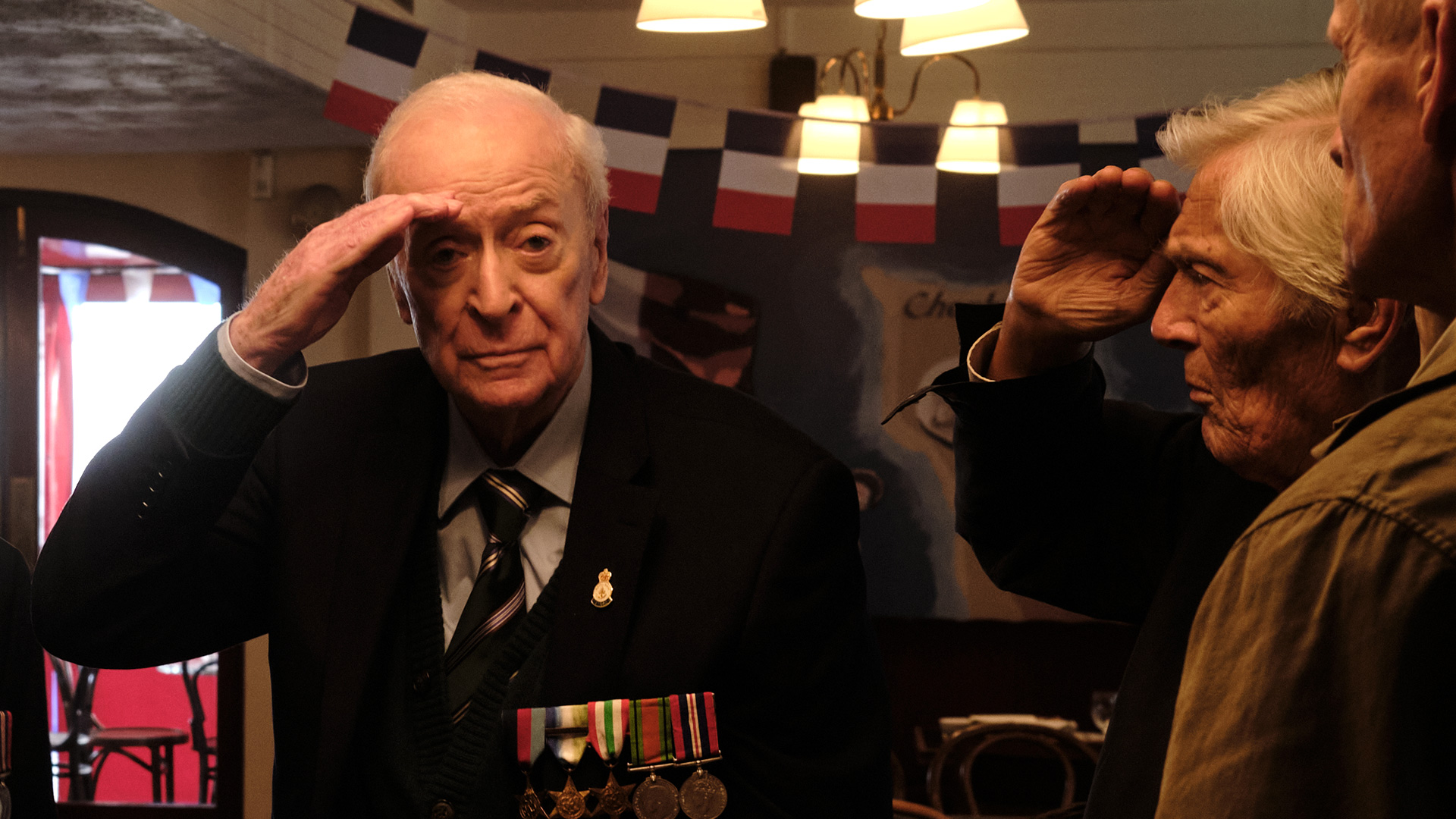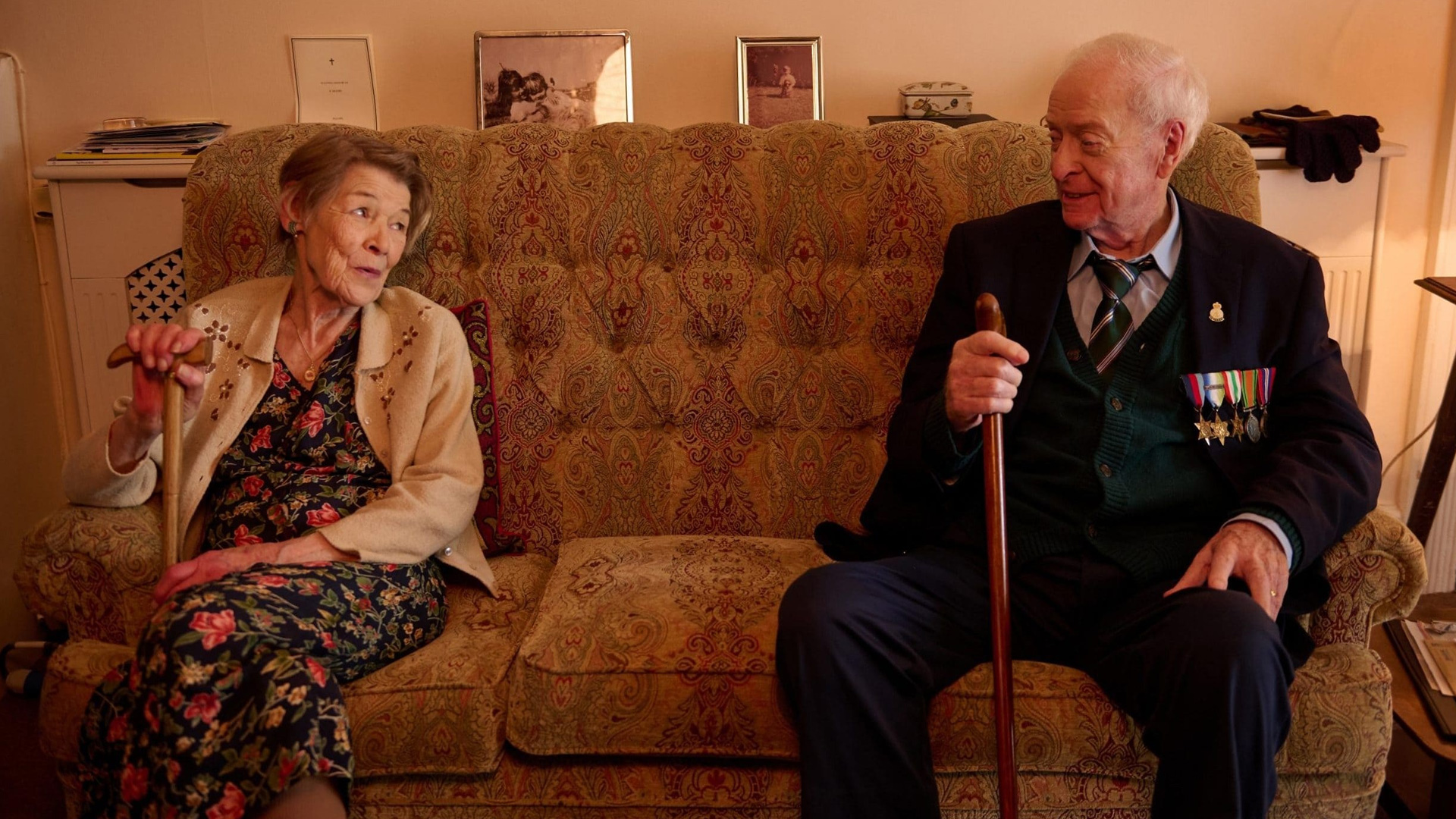The Great Escaper is a solid entry in a popular genre with no name
The Great Escaper is good enough to escape being a terrible product of the… Never Too Old genre? Pension-spiration flicks?

Michael Caine and Glenda Jackson star in The Great Escaper, based on the true story of a World War II veteran who snuck out of his care home to attend the 70th Anniversary of the D-Day Landings. As Liam Maguren writes, the film is another entry in a popular genre that has no name.
There’s a popular genre of film out there that, as far as I know, currently doesn’t have an official name yet. Senior moviegoers will know what I’m talking about. Trailers and marketing materials for these films aggressively trumpet the same notion: you’re never too old to [blank].
For example, you’re never too old to… start a cheerleading squad, walk the length of England, bus the length of England, visit the first and second best exotic marigold hotel, read 50 Shades of Grey, stalk an NFL quarterback, read 50 Shades of Grey in Italy, or pull off an art heist.
It’d be incorrect and ageist to call them “old people films” though they undeniably tap into (and sometimes exploit) a feeling pertinent to those in their twilight years. They often make for enjoyably light entertainment, but like another popular movie genre—the superhero film—it can also produce some boiled rubbish. (You’ll spot some listed above.)
Fortunately, The Great Escaper proves itself a solid entry in the no-name genre. Starring double Oscar winners Michael Caine and Glenda Jackson (in her final screen role), the film loosely relays the true story of WWII Royal Navy veteran Bernard Jordan (Caine) who, at the age of 89, snuck out of his nursing home to attend the 70th Anniversary of the D-Day Landings.
Put another way, you’re never too old to escape your assisted living institution and honour your fallen comrades. That pitch doesn’t quite have the zing of its peers and perhaps that’s to the film’s credit. The titular premise is a bit of a bait-n-switch: the actual “escape” Bernard pulls is really no big deal, and the eventual media frenzy surrounding the stunt doesn’t have much bearing on his journey. PTSD weighs heaviest in the film, not just the guilt Bernard’s been holding onto for half a century, but also a familiar worry his ailing wife Irene (Jackson) feels—the dreaded uncertainty of when (or if) they will be reunited.
Caine and Jackson couldn’t be more suited for the roles, their on-screen chemistry reading effortlessly as a love preserved for decades. They grumble, they banter, and they cannot bear to be apart. They’re just lovely together, so their eventual separation adds a certain tension to his quest to find closure and her quest to, well, not pass away before his return. When Bernard and Irene face the inner demons linked to the war, Caine and Jackson dig in deep to remind us why they’re screen veterans.
Unfortunately, their co-stars are given little opportunity to be memorable additions to the film. Care home nurse Adele (Danielle Vitalis) is largely there to pry info out of Irene, their scratchy relationship leading to an unconvincingly affectionate conclusion, while younger vet Scott (Victor Oshin) is given just a handful of scenes to flesh out a man broken by warfare, a thin arc capped off by a pretty unfair finger-wagging from Bernard.

And then there’s Will Fletcher and Laura Marcus as younger Bernard and Irene. While they’re suitable stand-ins for Caine and Jackson, the war flashbacks they’re in feel unsatisfyingly brief. Last year’s One Life (which, for the record, is not part of the no-name genre) balanced its two key time periods to boost the dramatic weight of its tear-inducing conclusion. Here, the flashbacks simply feel like info-dumps.
This unwillingness to mine deeper into its characters’ troubles seems largely symptomatic of The Great Escaper’s adherence to keep things light and entertaining—not dwelling on dilemmas, picking the mood back up with a sassy quip. There’s a great drama here that the film actively refutes, choosing instead to lean into director Oliver Parker’s experience with disposable British comedies like Swimming with Men and Johnny English Reborn to keep things strategically cutesy and quaint.
The Great Escaper can’t escape the genre traps it set for itself, but it’s good enough to escape being a terrible product of the… Never Too Old genre? Pension-spiration flicks? I still haven’t settled on a name, but I digress: there are plenty of ways to tell stories about World War II, and the stone-cold reality is that many people are going to pass on bitterly harrowing but cinematically tremendous experiences like The Zone of Interest and All Quiet on the Western Front.
At least films like The Great Escaper exist to explore the longstanding effects of a difficult time period in a more accessible format. You’re never too old to learn more about PTSD and the pains of war.
























